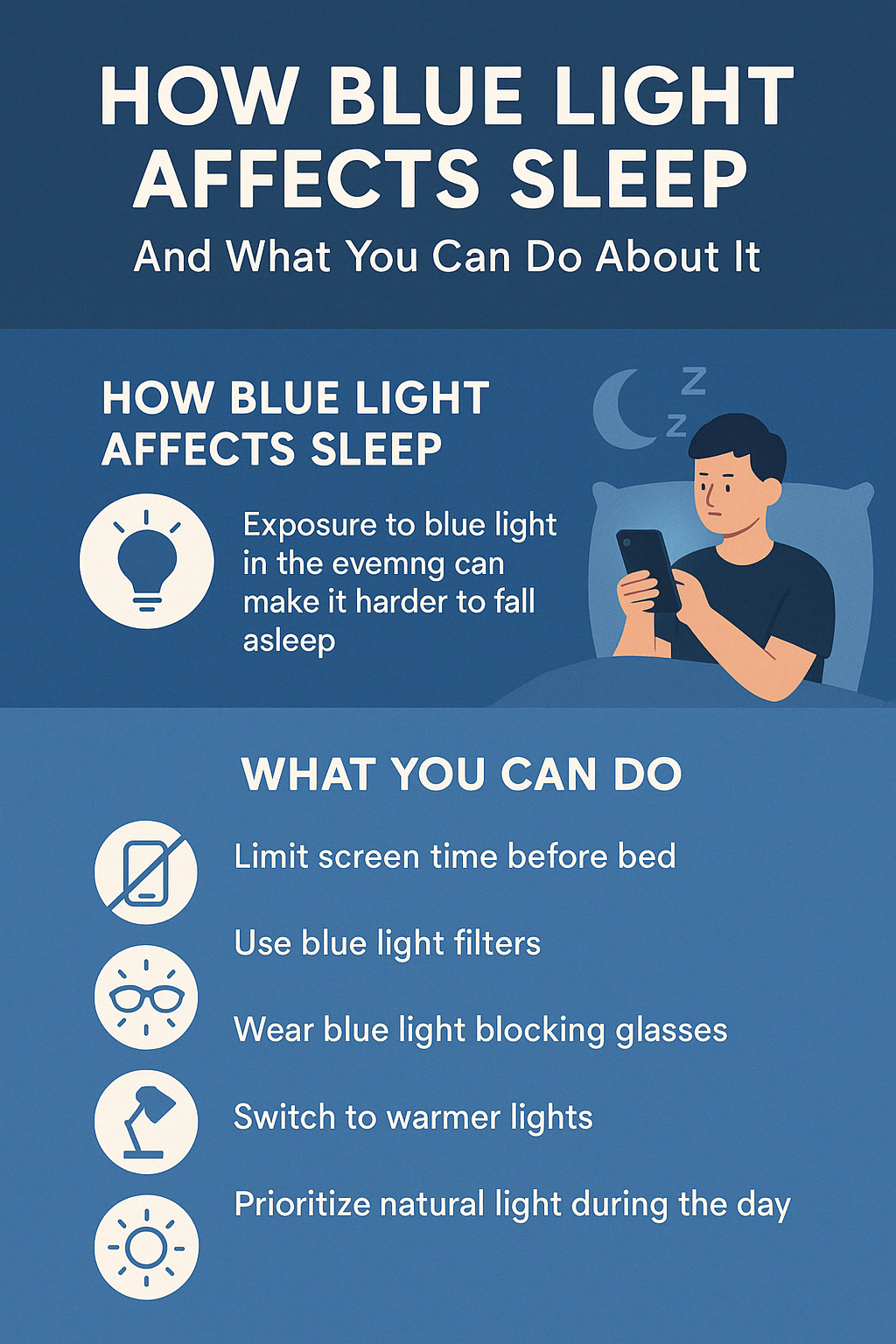How Blue Light Affects Sleep — And What You Can Do About It
In our modern world, screens are ubiquitous — found on phones, tablets, computers, TVs, and even LED lighting. While convenient, these devices emit a type of light known as blue light, and excessive exposure to it, especially at the wrong time, can significantly disrupt your sleep.
What Is Blue Light?
Blue light is a part of the visible light spectrum with a short wavelength, producing higher energy. It’s naturally found in sunlight and plays a role in regulating our circadian rhythm — the internal clock that tells our body when it’s time to be awake and when to sleep.
During the day, blue light boosts alertness and helps keep us focused. But when we’re exposed to it after the sun goes down, it can suppress melatonin, the hormone that makes us sleepy.
The Problem with Nighttime Screen Time
Melatonin levels naturally rise in the evening to prepare your body for rest. But when you’re staring at screens late into the night, blue light exposure can trick your brain into thinking it’s still daytime. This can lead to:
-
Difficulty falling asleep
-
Lighter, less restorative sleep
-
Shortened sleep duration
-
Feeling groggy in the morning
Over time, poor sleep can contribute to problems like anxiety, depression, weakened immunity, and reduced cognitive function.
Simple Ways to Protect Your Sleep from Blue Light
The good news is, you don’t have to ditch your devices altogether. Here are practical steps you can take:
1. Limit Screen Time Before Bed
Aim to turn off screens 1–2 hours before you plan to sleep. Use that time for calming activities, such as reading a physical book, journaling, or praying.
2. Use Blue Light Filters
Many phones, tablets, and computers have built-in settings, such as Night Shift on Apple or Night Light on Windows, that reduce blue light in the evening. You can also install apps like f.lux for extra control.
3. Wear Blue Light Blocking Glasses
These glasses have special lenses that filter out blue light. Wearing them in the evening can help maintain melatonin production.
4. Switch to Warmer Lights
Choose lamps and bulbs labeled as “warm” or “soft white,” or opt for incandescent bulbs (with a color temperature of 2700K or lower) for evening use. Avoid bright, cool-toned LEDs in your bedroom.
5. Prioritize Natural Light During the Day
Exposure to sunlight in the morning and throughout the day helps regulate your circadian rhythm, making it easier to wind down at night.
Blue light isn’t inherently bad — it helps us stay alert and productive during the day. However, in the evening, it can disrupt your natural sleep cycle. By making a few small changes, you can enjoy your screens without sacrificing your sleep.
Your brain and body will thank you the next morning.







Leave A Comment